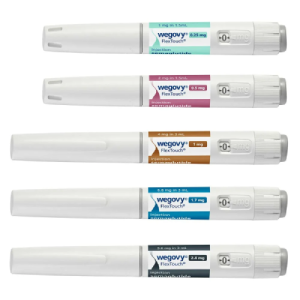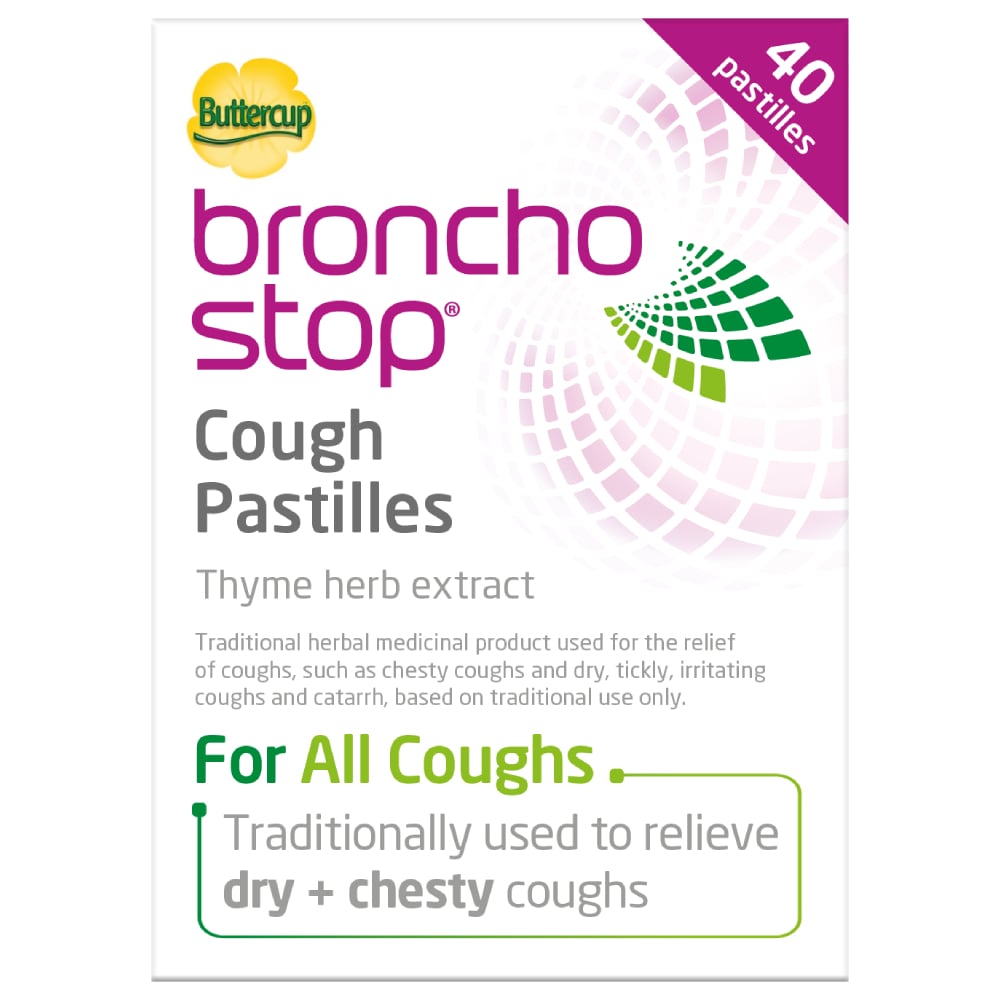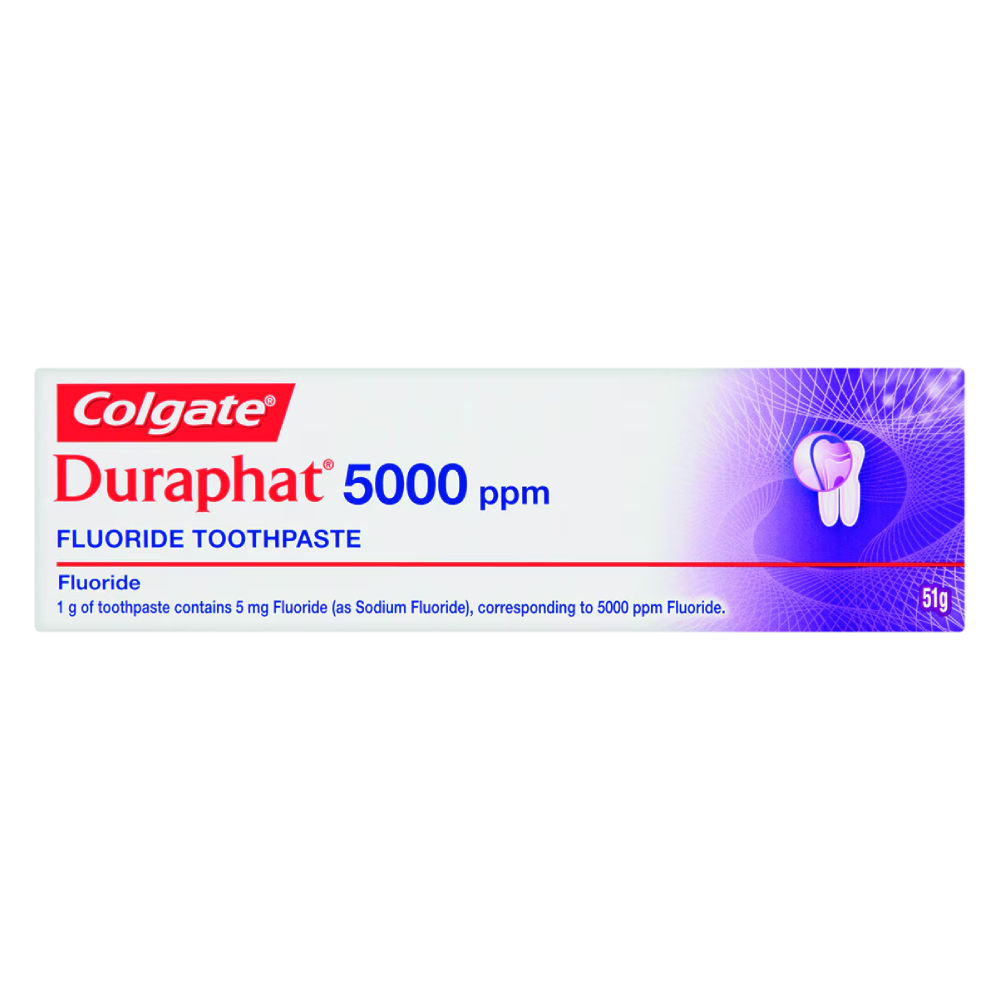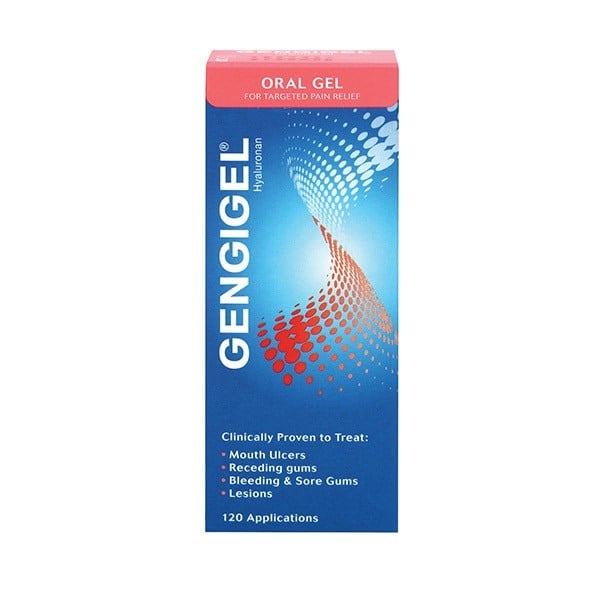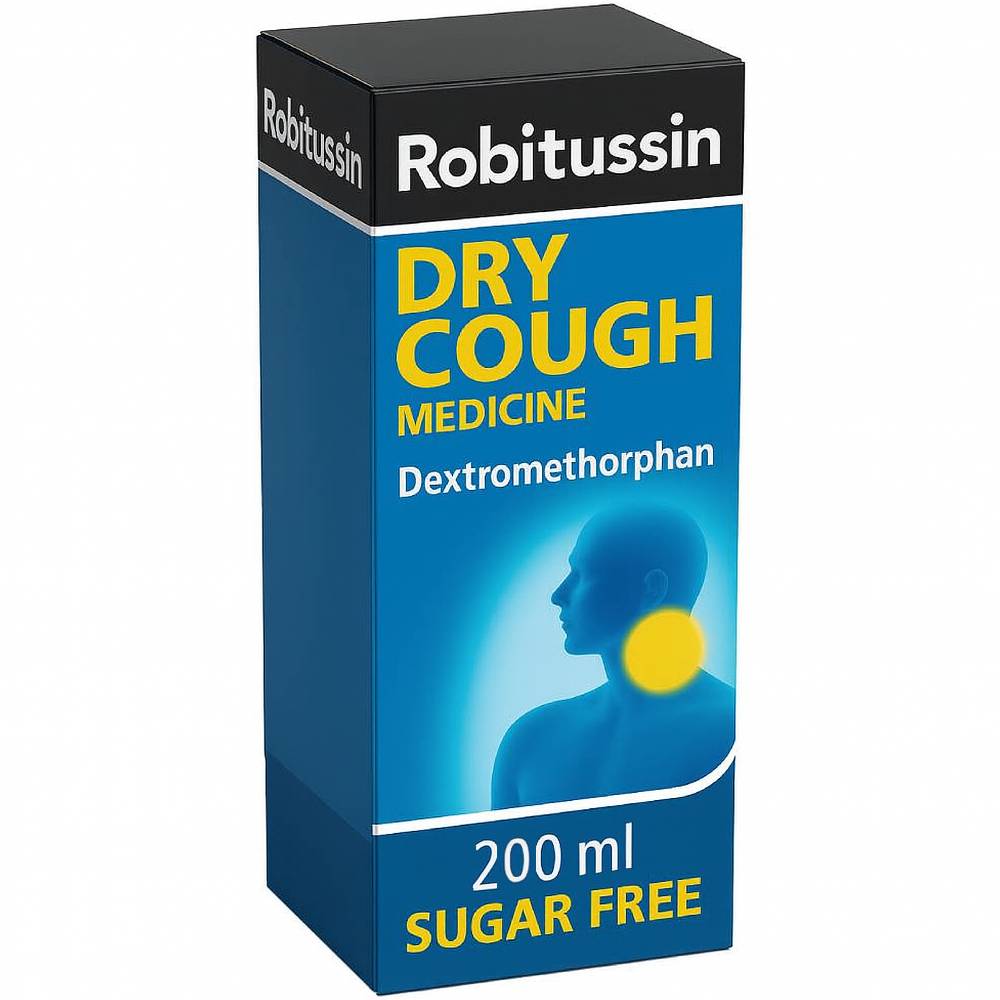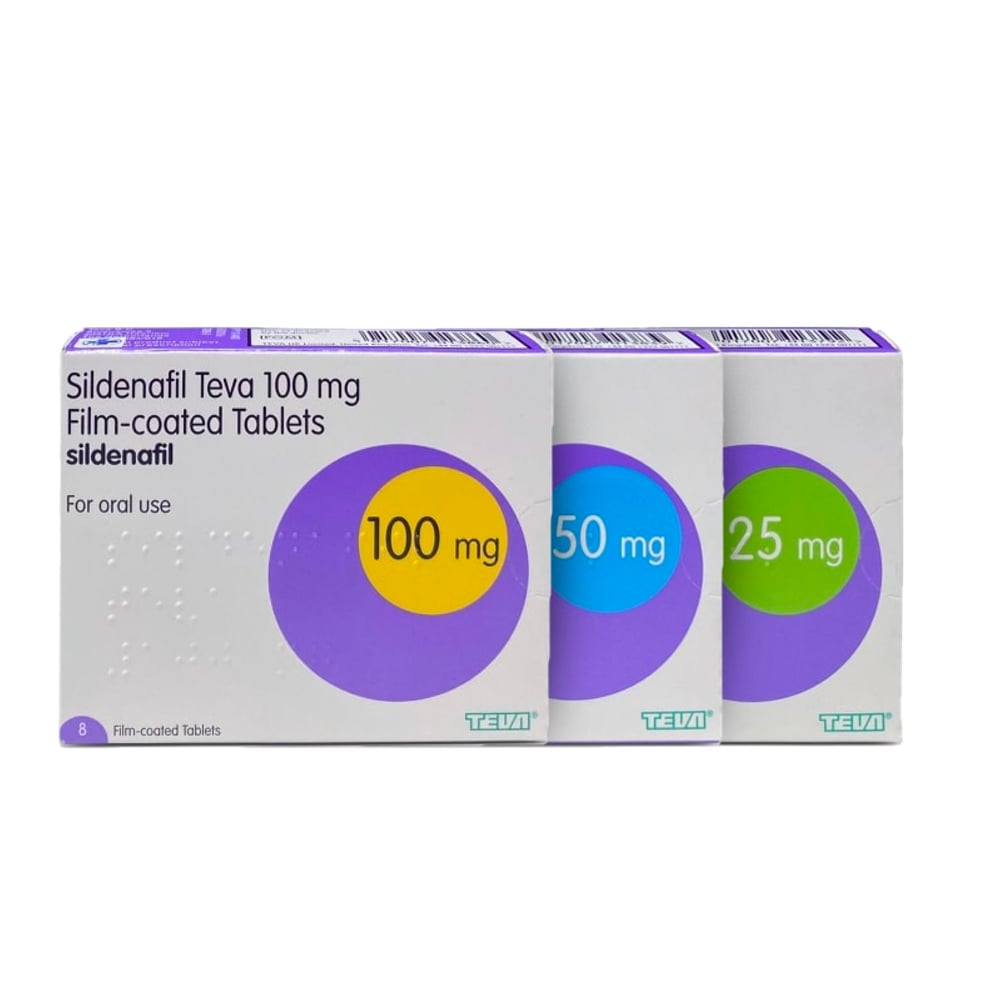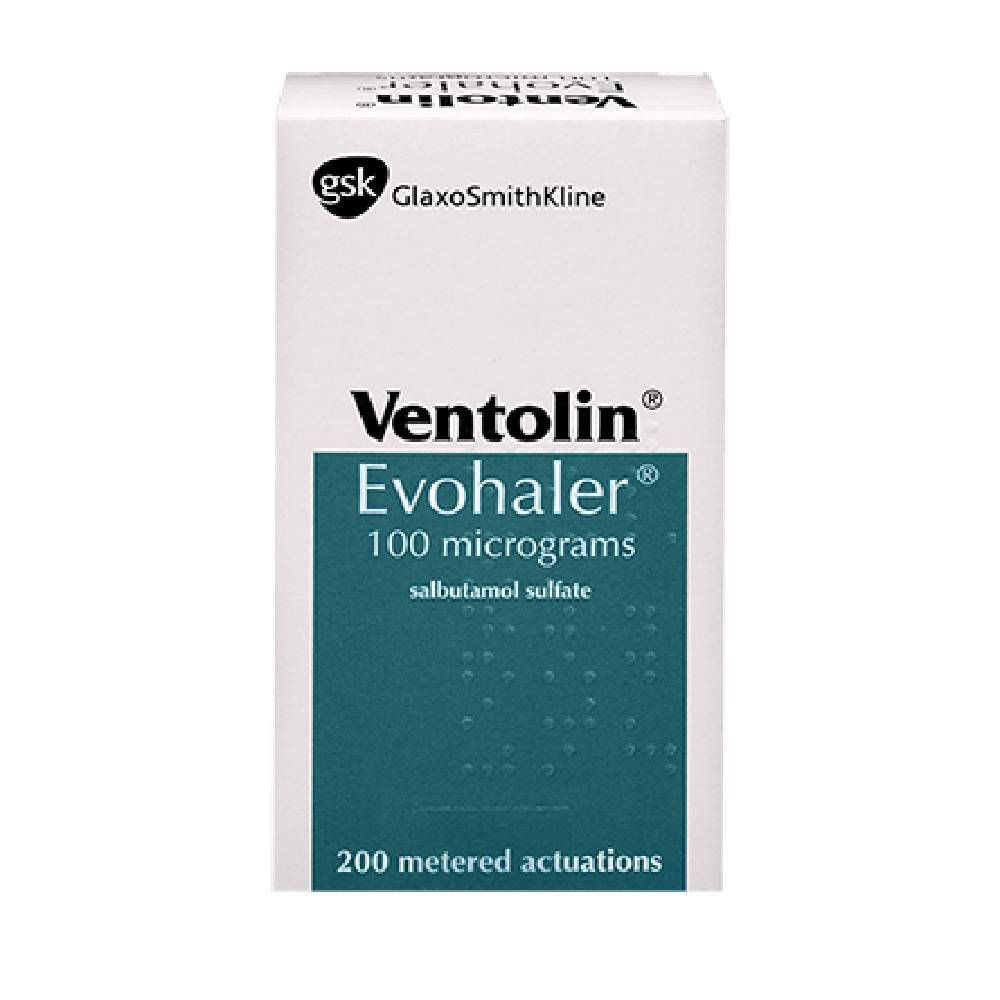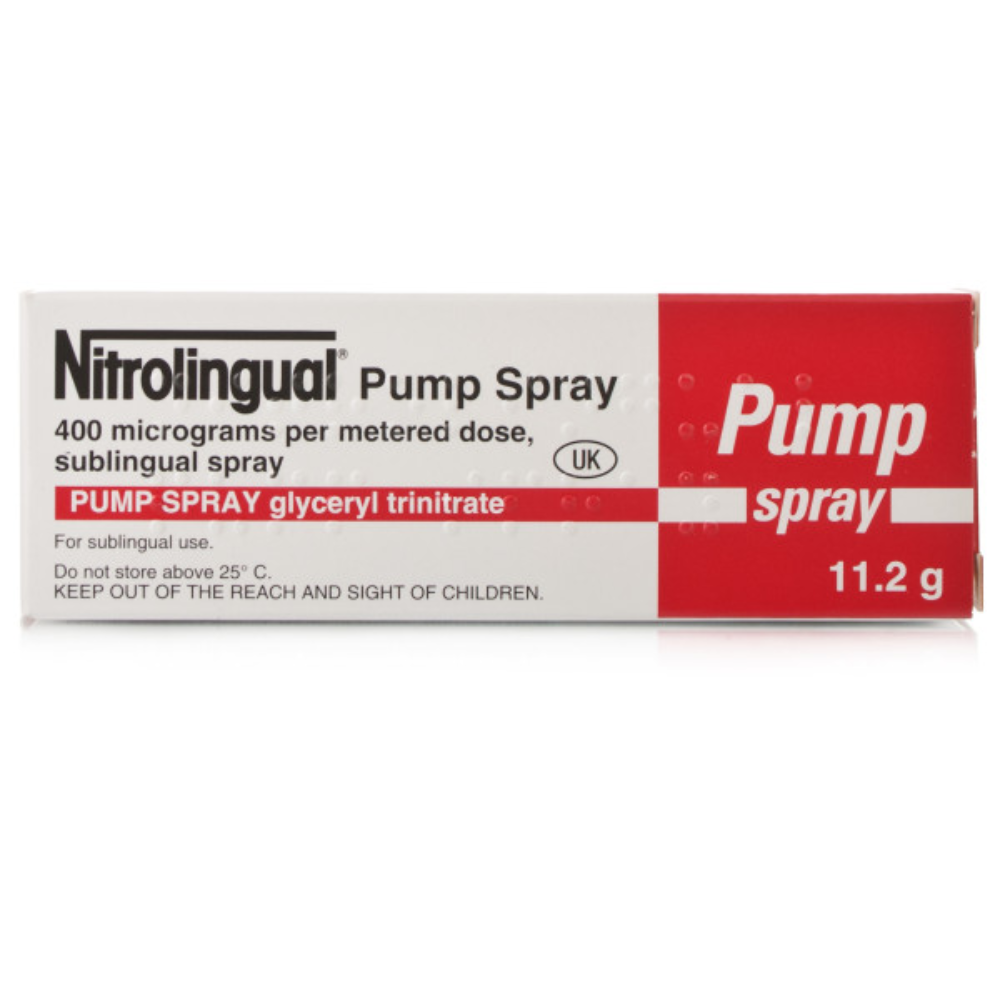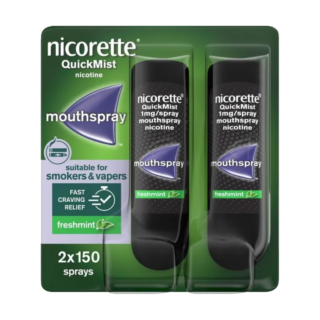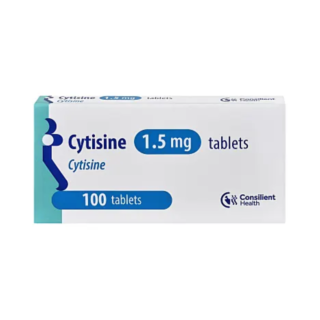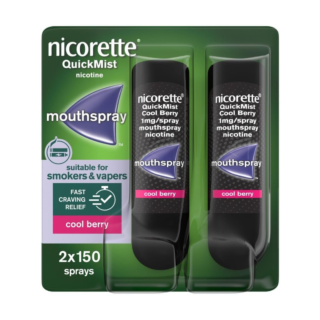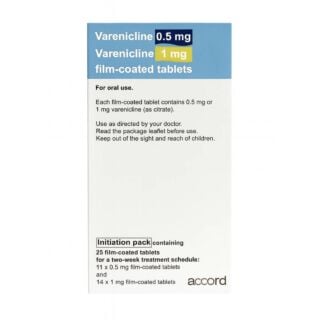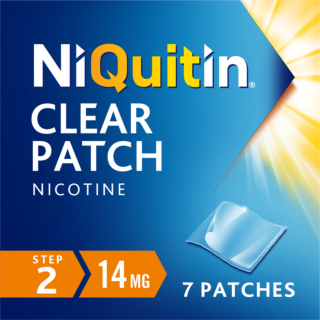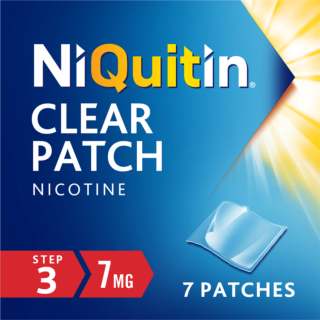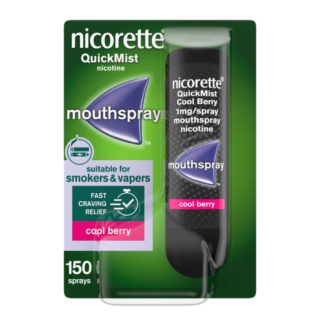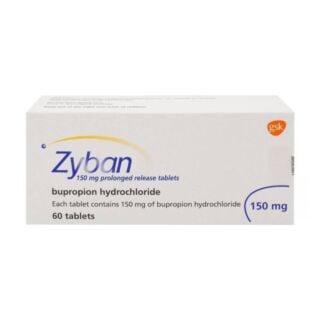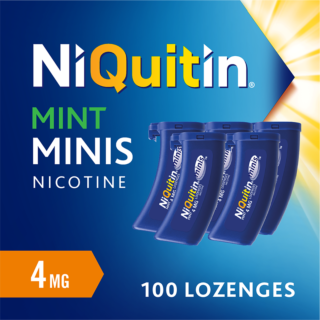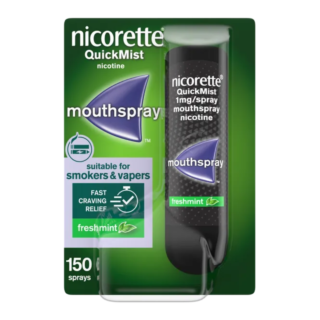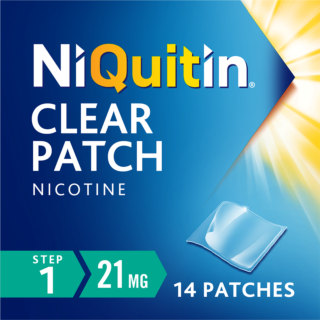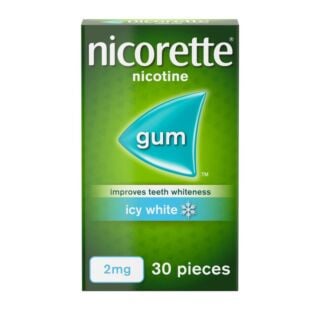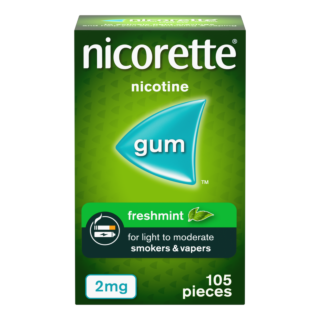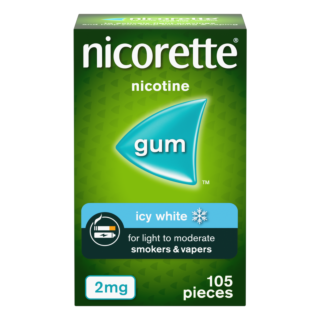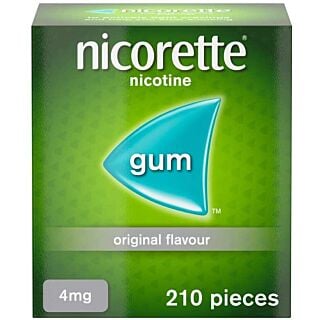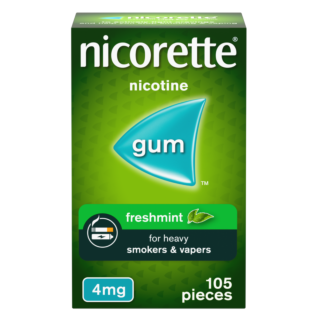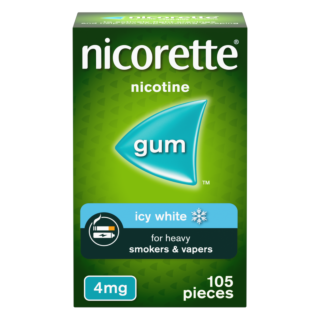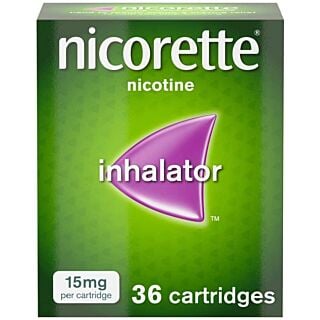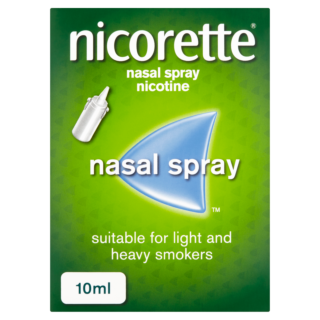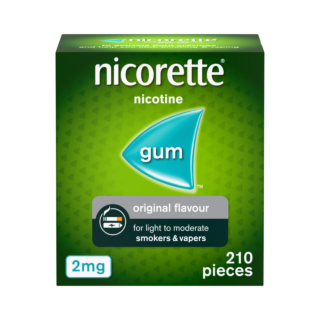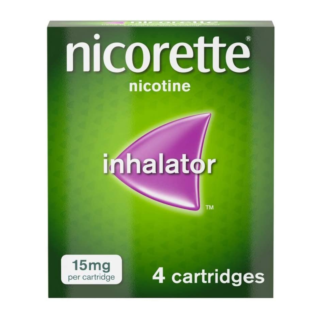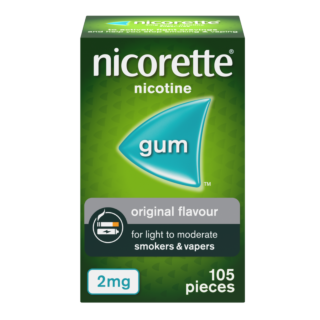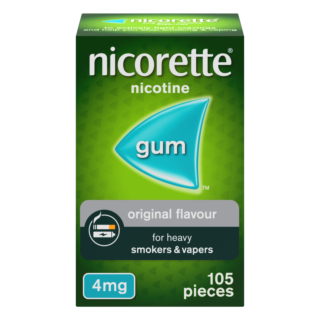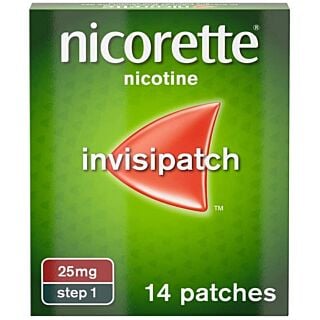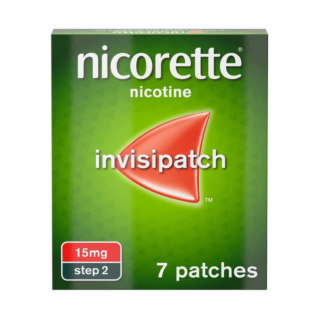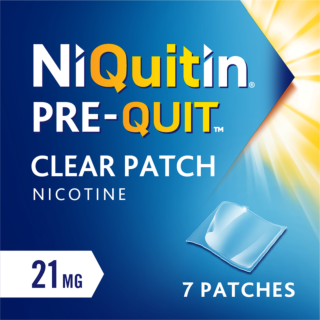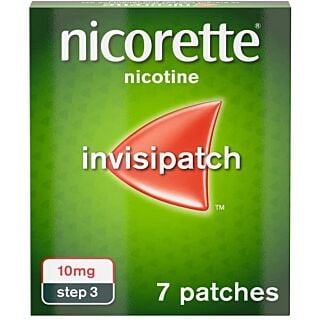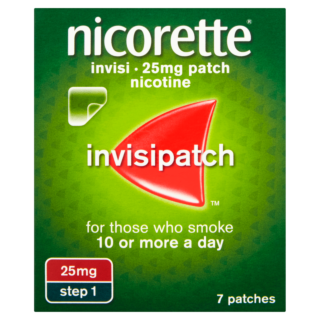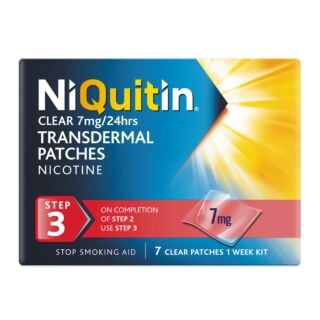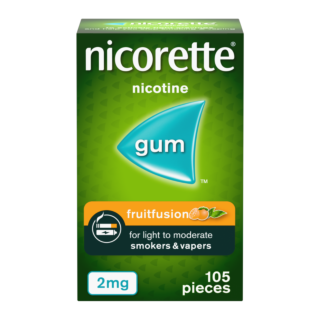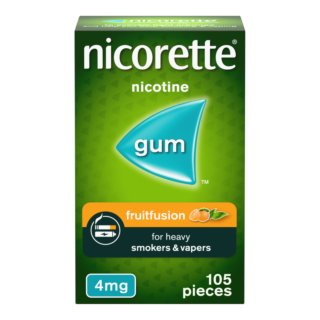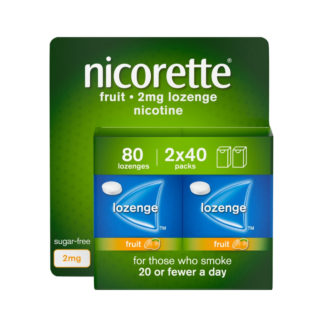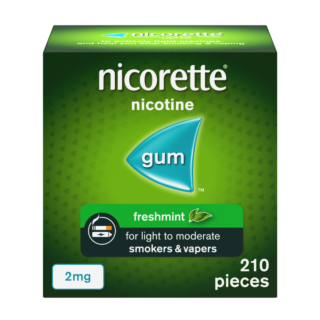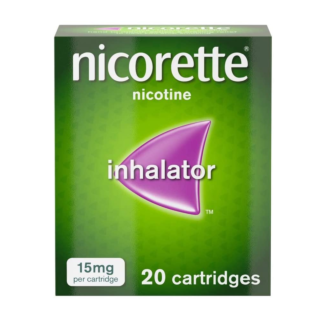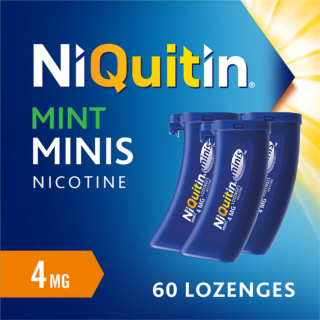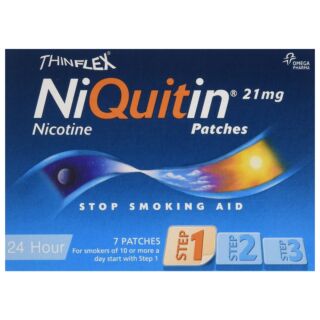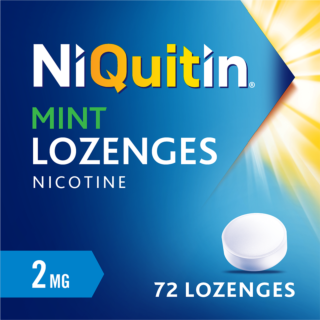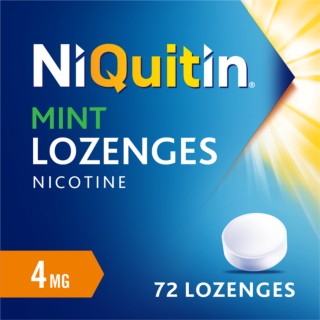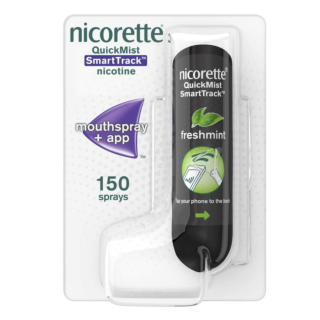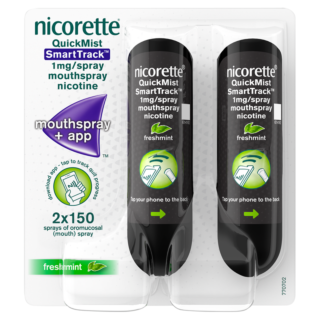Stop Smoking
Stopping smoking is one of the best things you can do for your health - but that doesn’t mean it’s easy. … Read More See less
If you’re ready to quit, there’s support available with a wide range of stop smoking aids including nicotine patches, tablets and gum. These treatments are designed to help manage cravings and withdrawal symptoms, giving you the best possible chance of quitting for good.
Why quit smoking?
Quitting smoking brings powerful and immediate benefits - and the earlier you stop, the more you stand to gain. No matter how old you are or how long you’ve smoked, your health begins to improve the moment you put that final cigarette down.
When you quit, your body gets to work on clearing out harmful toxins as it begins to repair itself.
Here are some of the ways it can benefit you:
- Physical health gains: Quitting reduces your risk of heart disease, stroke, cancer and many other conditions. As your body heals, you may also notice improvements in breathing, energy levels and even your skin and teeth may appear brighter
- Mental health gains: Giving up smoking delivers significant mental health benefits - it can help you feel calmer, less anxious and more positive
- Family and friends: You can protect loved ones from the dangers of second‑hand smoke, particularly in children and unborn babies
What’s the best way to stop smoking?
There’s no one-size-fits-all way to quit smoking - the best approach is the one that works for you.
Many people find they’re more successful with the help of stop smoking aids such as patches, gum, lozenges, nasal sprays or stop smoking tablets like varenicline – previously known as Champix - or bupropion – which you might recognise under the brand name Zyban.
These treatments help reduce cravings and withdrawal symptoms by replacing or blocking nicotine, making it easier to stay on track. You can also speak to your GP or any local stop smoking service for personalised support.
How do stop smoking aids work?
Stop smoking aids work by tackling the physical side of nicotine addiction - helping you to reduce cravings and withdrawal symptoms while you adjust to life without cigarettes.
- Nicotine replacement therapy (NRT) like patches, gum, lozenges and nasal sprays provide a controlled dose of nicotine without the harmful chemicals found in smoke
- Stop smoking tablets such varenicline and Zyban don’t contain nicotine. Instead, they affect the brain’s response to smoking - reducing enjoyment, cravings and withdrawal symptoms
You can use some products on their own or combine them. You might opt to wear a patch and chew gum for extra support, for example.
Many people also benefit from stop smoking services which offer expert advice, behavioural support and plans tailored to you.
A combination of physical and emotional support gives you a better chance of quitting for good.
What’s the right treatment to stop smoking?
Finding the right way to quit smoking depends on your lifestyle and how much support you feel you need.
Some people prefer a steady approach like you find with nicotine patches while others respond better to fast-acting products like gum or prescription tablets.
You can use many of these treatments alone or combine some of them for a stronger effect.
Here’s a breakdown of the most common stop smoking aids available:
Nicotine patches
Nicotine patches deliver a slow, steady dose of nicotine through the skin to help control cravings throughout the day.
You can opt for a 24-hour patch that covers you all day or a 16-hour patch that works while you’re awake. They’re available in different strengths and easy to use, making them an ideal choice if you want consistent support.
Nicotine gum
Nicotine gum provides quick relief from cravings by releasing nicotine as you chew and rest it on the inside of your cheek.
It’s easy to carry around which makes it useful when cravings strike suddenly, perhaps after meals or during stressful moments.
Gum also works well alongside patches if you need extra support.
Sprays and inhalators
These fast-acting options mimic the hand-to-mouth action of smoking and provide nicotine quickly through your nose or mouth.
Sprays are one of the fastest ways to absorb nicotine, while inhalators let you control your dose over time. Both are helpful for sudden cravings and are faster-acting compared to gum or lozenges.
Nicotine lozenges
Nicotine lozenges dissolve slowly in your mouth – ideally while resting against the inside of your cheek. They release nicotine over 20 to 30 minutes.
Like gum, they’re ideal if you want something discreet and easy to use on the go.
Stop smoking tablets
Prescription tablets like varenicline and Zyban (bupropion) don’t contain nicotine.
Instead, they work on your brain’s chemical pathways to reduce withdrawal symptoms and make smoking less enjoyable. These are usually taken for several weeks and may be more effective when combined with behavioural support.
How to use
Stop smoking treatments work best when used consistently and as directed.
Each product comes with its own instructions - whether it’s a patch applied daily, a lozenge dissolved slowly or a tablet taken at certain times.
To get the most from your treatment, it’s important to:
- Choose a product that suits your routine and habits
- Use it for the full recommended course
- Combine products, like a patch and gum, if you need the extra support
- Consider pairing your treatment with stop smoking support services or support groups
If you're unsure where to start, speak to your pharmacist or GP - they can help you find the right combination and explain how to use each aid properly.
FAQ
Are nicotine patches or tablets more effective?
Both nicotine patches and stop smoking tablets can be effective, but they work in different ways so the best option depends on your needs.
Nicotine patches steadily release nicotine into your body to reduce cravings. They’re widely used, easy to apply and can be worn throughout the day or night.
Stop smoking tablets don’t contain nicotine. Instead, they change the way your brain responds to smoking, helping reduce both withdrawal symptoms and the urge to smoke.
If you're not sure which to try, a pharmacist or GP can help you choose the treatment that’s right for you.
Can stop smoking pills help me quit for good?
Yes - stop smoking pills can improve your chances of quitting long term. They work by reducing cravings and making smoking less rewarding, rather than replacing nicotine.
Taken as part of a treatment plan and combined with support they offer a strong chance of success - especially if other methods haven’t worked for you.
How long does it take to quit smoking with support?
Everyone’s journey is different, but most NRT treatments are designed to be used for at least 12 weeks. A course of tablets like varenicline are often also a 12 week course.
With the right support, some people start to feel more in control after the first few days, with cravings easing more and more over time.
Are there any side effects to treatments?
Some stop smoking treatments can cause mild side effects like nausea, sleep issues or skin irritation – especially with patches.
Stop smoking tablets may cause headaches or vivid dreams.
Side effects vary by person and product but they’re usually temporary and less harmful than continuing to smoke.
If you’re worried about how any treatment makes you feel, speak to a pharmacist or your GP.
Are vapes worse than smoking?
No - while not risk-free, vaping is considered less harmful than smoking. Vapes don’t burn tobacco, so you avoid many of the toxins found in cigarette smoke.
Having said that, vaping is not harmless. We don’t yet know its long-term health effects and it should only be used as a tool for quitting smoking and not taken up by non-smokers or children.
Sources
- https://www.nhs.uk/better-health/quit-smoking/why-quit-smoking/benefits-of-quitting-smoking/
- https://www.nhs.uk/medicines/varenicline/about-varenicline/
- https://my.clevelandclinic.org/health/drugs/20035-bupropion-sustained-release-tablets-smoking-cessation
- https://www.asthmaandlung.org.uk/living-with/stop-smoking/quit
- https://www.nhs.uk/better-health/quit-smoking/staying-smoke-free/managing-nicotine-withdrawal-symptoms
- https://feelgoodsuffolk.co.uk/stop-smoking/stop-smoking-aids/
- https://www.nhs.uk/better-health/quit-smoking/ready-to-quit-smoking/quit-with-nicotine-free-medicines/
- https://www.cdc.gov/tobacco/campaign/tips/quit-smoking/quit-smoking-medications/how-to-use-quit-smoking-medicines/how-to-combine-medicines.html
- https://www.nhs.uk/live-well/quit-smoking/nhs-stop-smoking-services-help-you-quit/
- https://www.nhs.uk/better-health/quit-smoking/ready-to-quit-smoking/quit-with-nicotine-replacement-therapies-nrt/
- https://www.cdc.gov/tobacco/campaign/tips/quit-smoking/quit-smoking-medications/how-to-use-quit-smoking-medicines/how-to-use-the-nicotine-lozenge.html
- https://www.nhs.uk/better-health/quit-smoking/ready-to-quit-smoking/find-the-best-stop-smoking-products-for-you
- https://www.nhsinform.scot/healthy-living/stopping-smoking/how-to-stop/stop-smoking-medication/
- https://www.nhs.uk/better-health/quit-smoking/ready-to-quit-smoking/vaping-to-quit-smoking/vaping-myths-and-the-facts/

Free delivery when you spend over £39

100% discreet delivery for every item ordered

Fully regulated UK pharmacy
How can I quit smoking during pregnancy?
Stopping smoking is one of the best things you can do for your baby, but it can be tricky.
Nicotine Replacement Therapy (NRT) is considered safe to use while pregnant as it delivers a dose of nicotine that’s considered safe for you and your baby.
This option helps you to cope with withdrawal symptoms, which can be both mentally and physically taxing.
If your partner smokes too, it might be beneficial for them to quit with you - not only can it boost motivation, but it gets rid of the temptation of picking up a cigarette.
How can you stop smoking immediately?
If you’re looking for the fastest way to quit smoking, you’ll want to try nicotine replacement therapy to help you along the way.
Going cold turkey can result in withdrawal symptoms and cravings that are much harder to manage.
You can also try some self-help tips like increasing the amount of physical activity you do, reducing stress or joining a support group.
Is there an easy way to stop smoking?
Short answer? No.
If it was easy, there wouldn’t be any need for this guide!
Smoking isn’t just a habit, it’s an addiction and this is the main reason why it’s so difficult to quit.
Nicotine is a chemical that makes you addicted to smoking- the more you smoke, the more nicotine your body requires for you to feel ‘normal’.
When you give up smoking, your body isn’t getting any nicotine which can cause you to feel stressed, anxious and irritated.
This is known as withdrawal and it is the main reason that smokers continue to smoke, why choose to experience these unpleasant symptoms?
You want more money in your pocket and healthy lungs, that’s why!
There are so many stop smoking products and services that can help you through withdrawal, so you’ll never want to light up again.
What are the benefits of stopping smoking?
When you stop smoking you’re opening yourself up to a world of amazing benefits, and you may not have even considered all of them!
For starters, let’s think about all of the cash you’ll be saving when you don’t have to buy a packet of cigarettes every other day!
The NHS estimates that the average smoker could save an average of £141 a month or £1,696 a year when they give up!
If you put your smoking money into a piggy bank for one year just imagine what you could do with that money instead!
Holiday of a lifetime? Giant TV? The Christmas shopping spree you’ve always dreamed of? The possibilities are almost endless!
And we haven’t even spoken about the health benefits yet, kicking your smoking habit can leave you with benefits such as:
- Your sense of taste and smell improves
- Your lung function improves
- Your teeth and skin will look healthier
- You won’t smell like cigarette smoke
- Your fertility levels will improve and you’ll have a higher chance of having a healthy pregnancy
- Your fitness levels will improve overall
What are the side effects of quitting smoking?
While quitting smoking comes with a whole heap of health benefits, there may be difficult withdrawal symptoms you’ll have to deal with too.
The symptoms include nicotine cravings, difficulty concentrating, sleep problems, anxiety, increases in appetite, and irritability.
Whilst difficult to deal with, these symptoms should go away after two to four weeks, and nicotine replacement therapy can help along the way.
What happens to your skin when you quit smoking?
Much like the rest of your body, smoking can negatively affect your skin too.
It can cause premature ageing, dark spots, psoriasis, eczema, acne, and even a type of skin cancer called squamous cell carcinoma.
Luckily, you can reverse these effects by quitting smoking; your skin will look younger and healthier after just 6 months.
What are the hardest days when quitting smoking?
When trying to quit smoking, the physical symptoms of nicotine withdrawal can strike at any time.
However, many quitters have found that the third day without cigarettes is the hardest, as this is when the symptoms are at their worst.
Thankfully, these symptoms should start to gradually get better after day 3 and you’ll be over the worst of it in no time.

